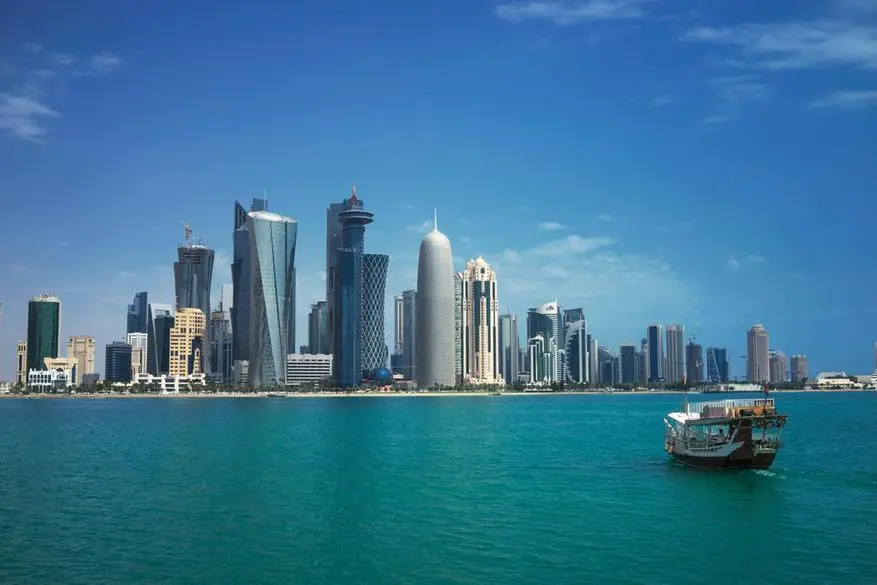PHOTO
Qatar is hosting an informal meeting of the Executive Board of the World Health Organisation (WHO), the Ministry of Public Health (MoPH) said in a statement Monday.
WHO Executive Board Chairperson HE the Minister of Public Health Dr Hanan Mohamed al-Kuwari is the chair of the meeting, in the presence of WHO Director-General Dr Tedros Adhanom Ghebreyesus, and the members of the board.
The meeting is aimed at discussing proposals as well as exchange views and ideas on the global health architecture and the fast-evolving health emergency landscape, and how this affects WHO governance, strategic issues, and financial sustainability.
The meeting will also discuss the proposal's terms scheduled to be discussed during the 154th session of the executive board to be convened next January.
The meeting emphasised the importance of the leading role of the WHO in ensuring global solidarity to address the challenges facing the humanitarian community, as the UN organisation acts as the directing and co-ordinating authority for international health work.
The meeting underlines the need to provide the WHO with adequate resources to respond to global health threats effectively and in a time-efficient manner and seek to build meaningful partnerships with member states and relevant stakeholders to strengthen health systems and promote health for all.
In her opening speech, HE Dr al-Kuwari welcomed the participants and confirmed the importance of the productive discussions, exchanging views and proposals on many issues of crucial importance to better address global health needs.
She expressed her profound concern about the numerous crises that are witnessed by many countries, whether man-made or natural.
The minister paid tribute to the courageous health workers who have tragically lost their lives in emergencies and conflicts.
HE Dr al-Kuwari also spoke about the tragic situation in the Gaza Strip.
“The repeated attacks on health facilities and healthcare workers are indefensible and violate international law (as) health facilities are sanctuaries designed solely to care for people and their families,” she said. “Preserving these crucial spaces and ensuring access to healthcare are fundamental imperatives.”
She highlighted out the importance of issues like preparedness and strengthening the global health security architecture, in addition to the profound effects of climate change on public health, which requires setting strong strategies and resilient health systems.
The minister added: "The Draft Fourteenth General Programme of Work (GPW14) delineates our collective vision and strategy for advancing global health.”
“Learning from the experiences of GPW13, it must serve as a beacon guiding the entire health ecosystem,” HE Dr al-Kuwari said. “Achieving this ambitious goal demands unwavering dedication and collaborative efforts."
The WHO’s Executive Board is responsible for enforcing decisions and policies of the General Assembly, providing consultation and facilitating its work.
Qatar was elected chairman of the Council at its 153rd session last May for a one-year term.
© Gulf Times Newspaper 2022 Provided by SyndiGate Media Inc. (Syndigate.info).WHO Executive Board Chairperson HE the Minister of Public Health Dr Hanan Mohamed al-Kuwari is the chair of the meeting, in the presence of WHO Director-General Dr Tedros Adhanom Ghebreyesus, and the members of the board.
The meeting is aimed at discussing proposals as well as exchange views and ideas on the global health architecture and the fast-evolving health emergency landscape, and how this affects WHO governance, strategic issues, and financial sustainability.
The meeting will also discuss the proposal's terms scheduled to be discussed during the 154th session of the executive board to be convened next January.
The meeting emphasised the importance of the leading role of the WHO in ensuring global solidarity to address the challenges facing the humanitarian community, as the UN organisation acts as the directing and co-ordinating authority for international health work.
The meeting underlines the need to provide the WHO with adequate resources to respond to global health threats effectively and in a time-efficient manner and seek to build meaningful partnerships with member states and relevant stakeholders to strengthen health systems and promote health for all.
In her opening speech, HE Dr al-Kuwari welcomed the participants and confirmed the importance of the productive discussions, exchanging views and proposals on many issues of crucial importance to better address global health needs.
She expressed her profound concern about the numerous crises that are witnessed by many countries, whether man-made or natural.
The minister paid tribute to the courageous health workers who have tragically lost their lives in emergencies and conflicts.
HE Dr al-Kuwari also spoke about the tragic situation in the Gaza Strip.
“The repeated attacks on health facilities and healthcare workers are indefensible and violate international law (as) health facilities are sanctuaries designed solely to care for people and their families,” she said. “Preserving these crucial spaces and ensuring access to healthcare are fundamental imperatives.”
She highlighted out the importance of issues like preparedness and strengthening the global health security architecture, in addition to the profound effects of climate change on public health, which requires setting strong strategies and resilient health systems.
The minister added: "The Draft Fourteenth General Programme of Work (GPW14) delineates our collective vision and strategy for advancing global health.”
“Learning from the experiences of GPW13, it must serve as a beacon guiding the entire health ecosystem,” HE Dr al-Kuwari said. “Achieving this ambitious goal demands unwavering dedication and collaborative efforts."
The WHO’s Executive Board is responsible for enforcing decisions and policies of the General Assembly, providing consultation and facilitating its work.
Qatar was elected chairman of the Council at its 153rd session last May for a one-year term.





















